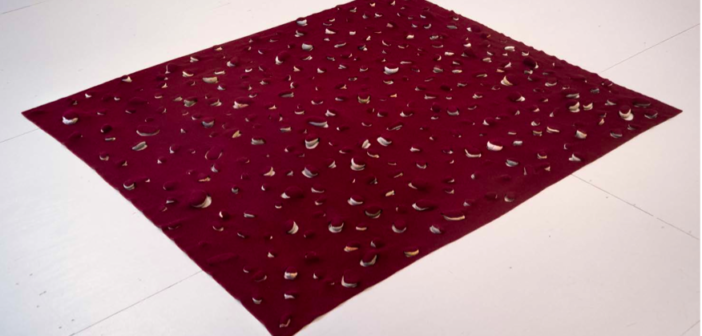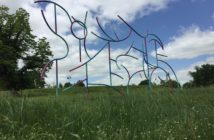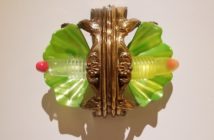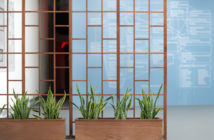In DisInterRuptions at Rafius Fane Gallery, artist Jeffrey Schiff explores the alchemical possibilities of materials. Schiff structures a series of situations in which contrary things are brought together to generate curious objects straddling sculpture, installation, collage, landscape, and photography. Rather than occupying a state of in-betweenness, the objects assume a stance of normality. Out of seemingly illogical and unnatural combinations appear items that are logical and natural, as if existing a priori of their condition as art.
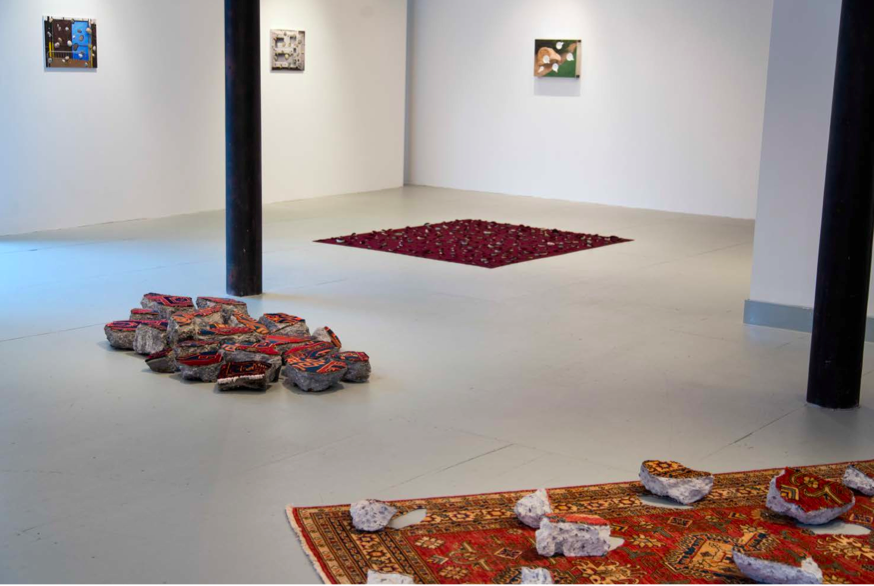
Jeffrey Schiff: DisInterRuptions. Installation View.
Shown on the floor and positioned in the gallery space as the centerpiece of DisInterRuptions, the Carpet Rubble series exemplify Schiff’s project with the exhibition. Carpet Rubble #1 comprises small to medium-sized stones integrated into a patterned carpet, either laid on top of the textile or occupying cutouts in the textile and in contact with the floor. Carpet Rubble #2 and Carpet Rubble #4 represent deconstructed carpets affixed to blocks of rubble sourced from Brooklyn sidewalks. In each, the arrangement of the carpet/rubble-shapes loosely conforms to the pattern of the originary carpets, and even little bits of fringe skirt the corners of the compositions. Not quite carpet, and not quite sidewalk breakage, the Carpet Rubble works encapsulate the transmutative outcomes of Schiff’s artistic process.
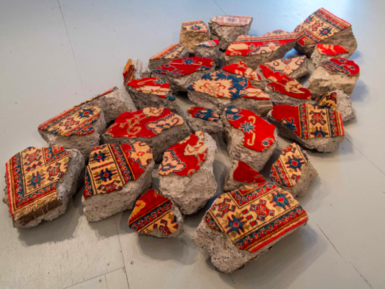
Jeffrey Schiff, CarpetRubble #4.
Adjacent to and formally related to the Carpet Rubble series, Disthermia #1 also combines textile and stone. Though displayed on the floor like a Carpet Rubble, the work diverges from its formal cousin. Felt constitutes the textile component of the piece, and the stones interact with that felt in an almost endless variety of ways. Placed on top of, underneath, and occupying cut-outs in the felt, the stones disrupt an ocean of fabric and effect a dynamic visual field onto an otherwise monochromatic, flat entity. The Disthermia Studies, shown on a wall next to Disthermia #1, spell out Schiff’s process for creating the floor work. Displayed at hip level and designed to be looked at from above, the notebook-sized Disthermia Studies chart the artist’s investigations into the many potential interactions between stone and felt. Disthermia Study #3 and Disthermia Study #4 are the most visually arresting of the studies. In Disthermia Study #3, strips of bright yellow felt energetically snake between stones, pressing them into impossible positions. Disthermia Study #4 also uses yellow felt, but the fabric coils around one single stone at the center.
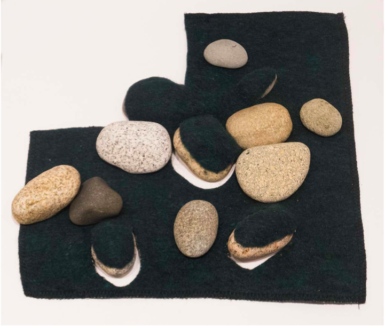
Jeffrey Schiff, DisThermia Study #1.
The Interruptions series line the remaining walls of the gallery. In almost all the works, stones occupy cut-out holes in photographs. Though Schiff sources the stones from the New England coastline, they take on a kind of detached anonymity when affixed to the surface of a photograph. The photographic images derive from various cities in the United States, India, and Italy. Using a shallow depth of field, Schiff limits the subjects of the photographs to the more mundane aspects of urban life. In Schiff’s hands, details like sidewalks, walls, and doors become provisional and nondescript, manifesting an attitude of remove similar to that possessed by the constellation of stones embedded in the photographs. Interruptions #10: Measuring Cups is a curious outlier to the Interruptions series. Diverging from the stone + photograph formula, Interruptions #10 combines measuring cups with photographic image, a superficially random interaction between two very distinct categories of objects.
But, the stuff of the world is the result of an undiscriminating cycle of accumulation and loss, a cycle which Schiff merely repeats in his artistic process. By taking things out of their context, fragmenting them, and then combining with other things, Schiff illuminates the casual relationships undergirding all matter.
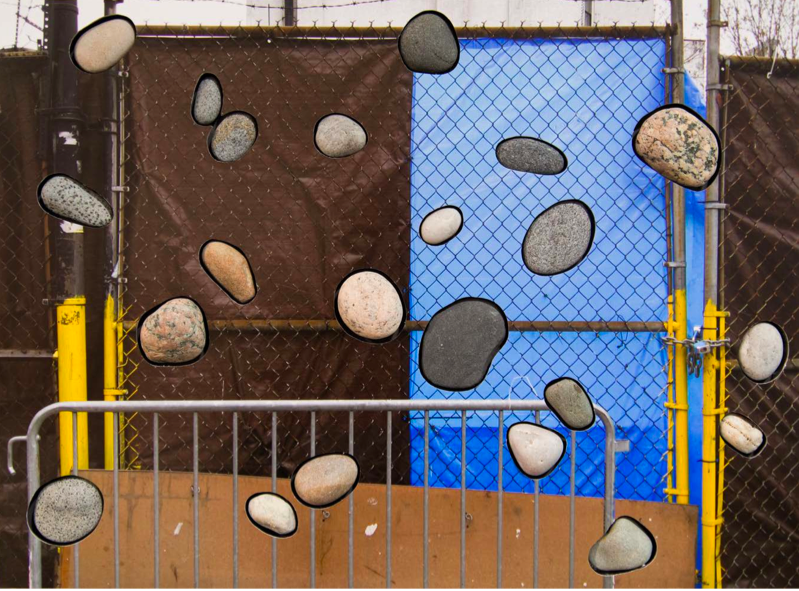
Jeffrey Schiff, Interruptions #4.
Jeffrey Schiff, DisInterRuptions, is on view at Rafius Fane Gallery through December 15, 2017.

